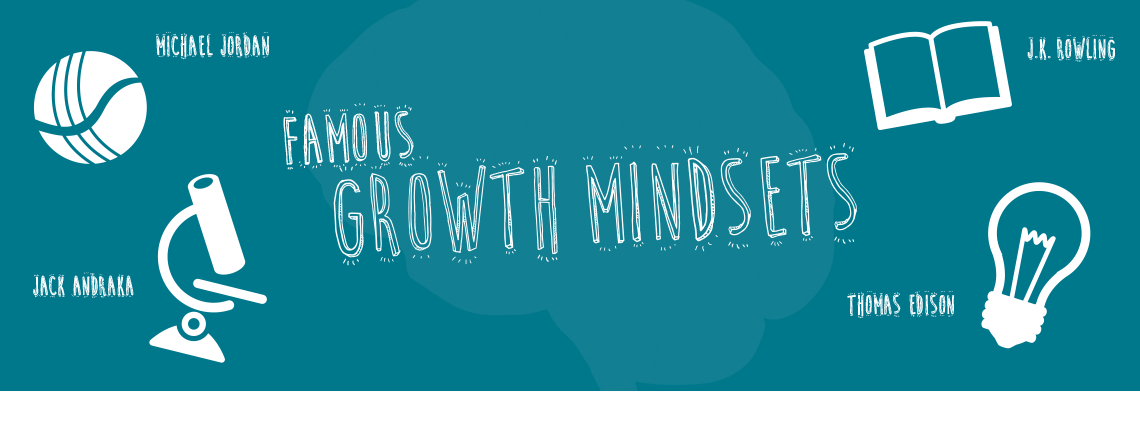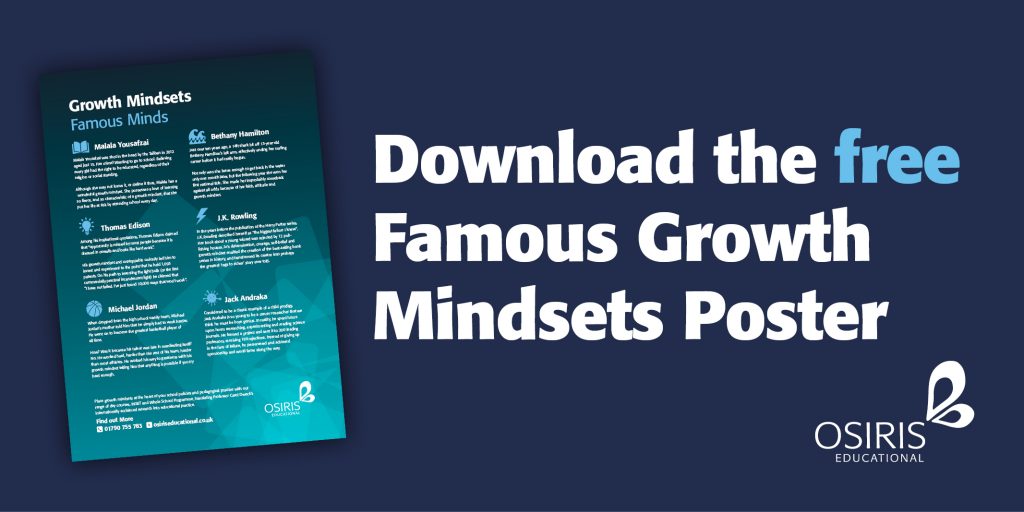We bring you inspiring stories of how resilience, bravery and struggle led to unprecedented heights of success against the odds…

At a time of year when awards ceremonies are rife, one teenager has prizes raining down on her. She is not a musical prodigy, nor is she a budding actress: she is famous for wanting to go to school. She has been awarded Person of the Year by numerous countries, and was shortlisted for a Nobel Peace Prize. That person is Malala.
Malala Yousafzai was shot in the head by the Taliban in October 2012, aged just 15. Her crime? Wanting to go to school. Believing every girl had the right to be educated, regardless of their religion.
Although she may not know it, or define it thus, Malala has a wonderful growth mindset. She possesses a love of learning so fierce, and so characteristic of a growth mindset, that she risked her life every day to attend school.
She understands with astute clarity that the world owes you nothing, you have to work hard to become good at something, and that you have to practise. If you want the world to change, you have to be that change.
To a backdrop of constant gunfire, Malala was fighting her own battle in the school room, against the new girl who displaced her at the top of the class. Instead of assuming that this girl was naturally cleverer than her, as someone of a fixed mindset would, Malala understood that now she would have to work even harder to maintain her place at the top of the class.
This is one of many stories in her autobiography ‘I am Malala’ which demonstrate the strength and depth of her growth mindset.
Malala is an excellent role model in many ways: she is brave in the face of terror, she campaigns relentlessly for what she believes is right, and she loves going to school. Why, we ask ourselves, are our students so reluctant to learn when children in other parts of the world are dying to see the inside of a school classroom? In fact, a recent UNESCO report stated that 57 million children remain without the opportunity to go to school.
Is it some reflection of our society? Has the privilege become so customary that it is inconvenient? What can we do to make children in this country want to attend school and want to learn more? We can teach them the growth mindset.

In the years before the publication of the Harry Potter series, J.K. Rowling described herself as “the biggest failure I knewâ€. Her book about a young wizard was rejected by 12 publishing houses. Jo’s determination, courage, self-belief and growth mindset enabled the creation of the best-selling book series in history, and transformed its creator into perhaps the greatest ‘rags to riches’ story ever told.

Among his inspirational quotations, Thomas Edison claimed that “opportunity is missed by most people because it is dressed in overalls and looks like hard workâ€. His growth mindset and unstoppable curiosity led him to invent and experiment to the point that he held 1,093 US patents. On his path to inventing the light bulb (or the first commercially practical incandescent light) he claimed that “I have not failed. I’ve just found 10,000 ways that won’t workâ€.

Considered to be a classic example of a child prodigy, Jack Andraka is so young to be a cancer researcher that we think he must be a born genius. In reality, he has spent hours upon hours researching, experimenting and reading science journals. He formed a project and sent it to 200 leading professors, receiving 199 rejections. Instead of giving up in the face of failure, he persevered and achieved sponsorship and world fame along the way.

Just over ten years ago, a 14ft shark bit off 13-year-old Bethany Hamilton’s left arm, effectively ending her surfing career before it had really begun. Not only was she brave enough to get back in the water only one month later, but the following year she won her first national title. She made her improbable comeback against all odds because of her faith, attitude and growth mindset.

When dropped from his high-school varsity team, Michael Jordan’s mother told him that he simply had to work harder. He went on to become the greatest basketball player of all time. How? Was it because his talent was late in manifesting itself? No. He worked hard, harder than the rest of his team, harder than most athletes. He worked his way to greatness with his growth mindset telling him that anything is possible if you try hard enough. SR


